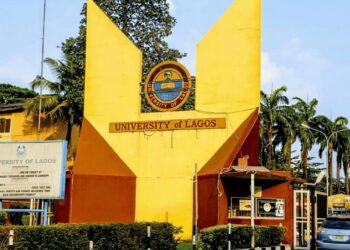Technical education and vocational training (TVET) are integral to the economic development of West Africa. As the region faces rapid population growth, urbanization, and increasing industrialization, the demand for a skilled workforce is higher than ever. However, the region is struggling with outdated infrastructure and insufficient resources for TVET programs. According to the World Bank, less than 4% of secondary school students are enrolled in formal TVET programs, and the gross enrollment rate in higher education is only around 11%, far below the 54% average in Latin America and the Caribbean and the 74% average in OECD countries.
The lack of adequate investment in updating training infrastructure hampers the quality of education, making it difficult for graduates to meet industry demands. Modernizing technical platforms is crucial for addressing these gaps, ensuring that TVET systems are responsive to the changing dynamics of labor markets, and providing students with practical, industry-relevant skills.
Industrialization Landscape in West Africa
Industrialization levels in West Africa vary, affecting economic structures and labor needs. According to the African Development Bank’s 2022 index, Nigeria, Ghana, and Côte d’Ivoire have made significant industrial progress, with Nigeria expanding in oil, gas, textiles, and food processing, Ghana focusing on mining and oil, and Côte d’Ivoire investing in agro-processing and energy.
In contrast, nations like Mali and Niger remain heavily reliant on agriculture, with limited industrial diversification. This disparity necessitates tailored approaches to vocational training, ensuring that curricula and facilities meet the specific needs of each country’s dominant industries.
2. Demand for Skilled Labor
The industrial activities in these countries have created a heightened demand for skilled labor. However, there is often a disconnect between the skills provided by vocational training institutions and those required by industries. The International Labor Organization (ILO) has highlighted this skills mismatch as a significant barrier to economic growth in the region. Employers frequently report difficulties in finding workers with the necessary technical competencies, leading to increased unemployment rates among trained individuals and unfilled positions in industries.
For example, Ghana’s ambition to become a refining hub in West Africa has led to the development of the “Petroleum Hub” project, aiming to build three refineries with a combined capacity of 900,000 barrels per day. This initiative underscores the need for a workforce skilled in advanced refining technologies.
3. Challenges in Modernizing Technical Facilities
Upgrading technical facilities for vocational training faces several challenges:
- Funding Constraints: Limited financial resources hinder the procurement of modern equipment and the renovation of training centers.
- Curriculum Relevance: Training programs often fail to align with current industry standards, leading to outdated skill sets among graduates.
- Infrastructure Deficiencies: Inadequate facilities and lack of access to modern technologies impede effective hands-on training.
- Faculty Development: There is a shortage of qualified trainers proficient in contemporary industrial practices.
4. Strategies for Enhancing Technical Training Facilities
To address these challenges, several strategies can be implemented:
- Public-Private Partnerships (PPPs): Collaborations between governments and private enterprises can mobilize resources for upgrading training facilities. For instance, Benin’s initiative to develop a “farm to fashion” value chain in the textile sector involves partnerships aimed at industrializing the economy through modern training facilities.
- Curriculum Overhaul: Regular updates to training programs are essential to reflect technological advancements and industry requirements. Engaging industry experts in curriculum development ensures relevance and enhances employability.
- Infrastructure Investment: Allocating funds for the construction and maintenance of state-of-the-art training centers equipped with modern machinery facilitates effective skill development.
- Faculty Training: Investing in continuous professional development for trainers ensures that teaching methodologies and content remain aligned with industry practices.
- Adopting National Qualification Frameworks (NQFs): A National Qualification Framework (NQF) standardizes educational qualifications to match industry skill requirements. The World Bank recommends adopting NQFs in West Africa to harmonize skills across countries, improving worker mobility and making it easier to find employment.
Case Studies of Successful Initiatives
- Ghana’s Petroleum Hub: The establishment of the Petroleum Hub in Ghana exemplifies a strategic approach to industrialization and workforce development. The project is expected to create approximately 800,000 jobs and significantly boost the nation’s GDP. However, challenges such as financing and infrastructure development remain, necessitating a skilled workforce trained in modern refining technologies.
- Benin’s Textile Sector Development: Benin’s investment in the textile sector aims to transform the economy by processing cotton domestically. This initiative requires the development of modern training facilities to equip workers with necessary skills, highlighting the importance of aligning vocational training with industrial goals.
Recommendations for Policy Makers
To effectively modernize technical facilities for vocational training, policymakers should consider the following actions:
Enhance Investment in Education: Allocate sufficient funds to develop and maintain training infrastructures that meet industry standards.
Foster Industry-Academia Collaboration: Establish platforms for continuous dialogue between industries and training institutions to ensure curricula and facilities align with evolving industry needs.
Promote Regional Cooperation: Sharing resources and best practices among West African countries can lead to more efficient use of limited resources and bolster collective industrial growth.
Implement Monitoring and Evaluation Systems: Regular assessment of training programs and facilities ensures that they remain responsive to industry demands and contribute effectively to economic development.
Conclusion
Modernizing technical facilities for vocational training in West Africa is essential for sustaining industrial growth and meeting the evolving demands of the labor market. By addressing funding constraints, updating curricula, investing in infrastructure, and developing faculty expertise, countries in the region can enhance their competitiveness and foster inclusive economic development. Strategic initiatives, such as Ghana’s Petroleum Hub and Benin’s textile sector development, demonstrate the potential of aligning vocational training with industrial objectives, paving the way for a prosperous industrial future in West Africa.
References
- World Bank. (2021). Industrialization in Sub-Saharan Africa: Seizing Opportunities in Global Value Chains
- World Bank. (2020). Improving the Supply of Labor for the Poorest Workers in Sub-Saharan Africa
- World Bank. (2015). Developing Skills for Africa’s Transformation
- African Development Bank. (2022). Indice de l’Industrialisation en Afrique
- International Labor Organization. (2020). Skills Mismatch in West Africa: Challenges and Opportunities
______________________ Thierry-Arnaud AMON-AKA is an entrepreneur and former supply chain manager with over a decade of experience in optimizing logistics and operational efficiencies. With a degree in International Trade from CSI Polytechnic, he began his career in the corporate sector, where he developed expertise in supply chain & procurement strategies. In 2022, Thierry-Arnaud transitioned to entrepreneurship, founding ABYSSA GROUP with a mission to develop sustainable industrial practices in Africa. His work focuses on empowering local communities through innovative supply chain solutions & vocational trainings that enhance productivity and create economic opportunities. A passionate advocate for sustainability in local industry development, Thierry-Arnaud mentors young entrepreneurs, sharing knowledge and fostering collaboration to drive meaningful change. Residing in Abidjan in Côte d’Ivoire, Thierry-Arnaud enjoys playing basketball and traveling and remains committed to inspiring future generations to embrace innovation and sustainability in their pursuits. amonakathierry@gmail.com abyssagroup@gmail.com www.linkedin.com/in/thierry-arnaud-amon-aka


















































































 EduTimes Africa, a product of Education Times Africa, is a magazine publication that aims to lend its support to close the yawning gap in Africa's educational development.
EduTimes Africa, a product of Education Times Africa, is a magazine publication that aims to lend its support to close the yawning gap in Africa's educational development.